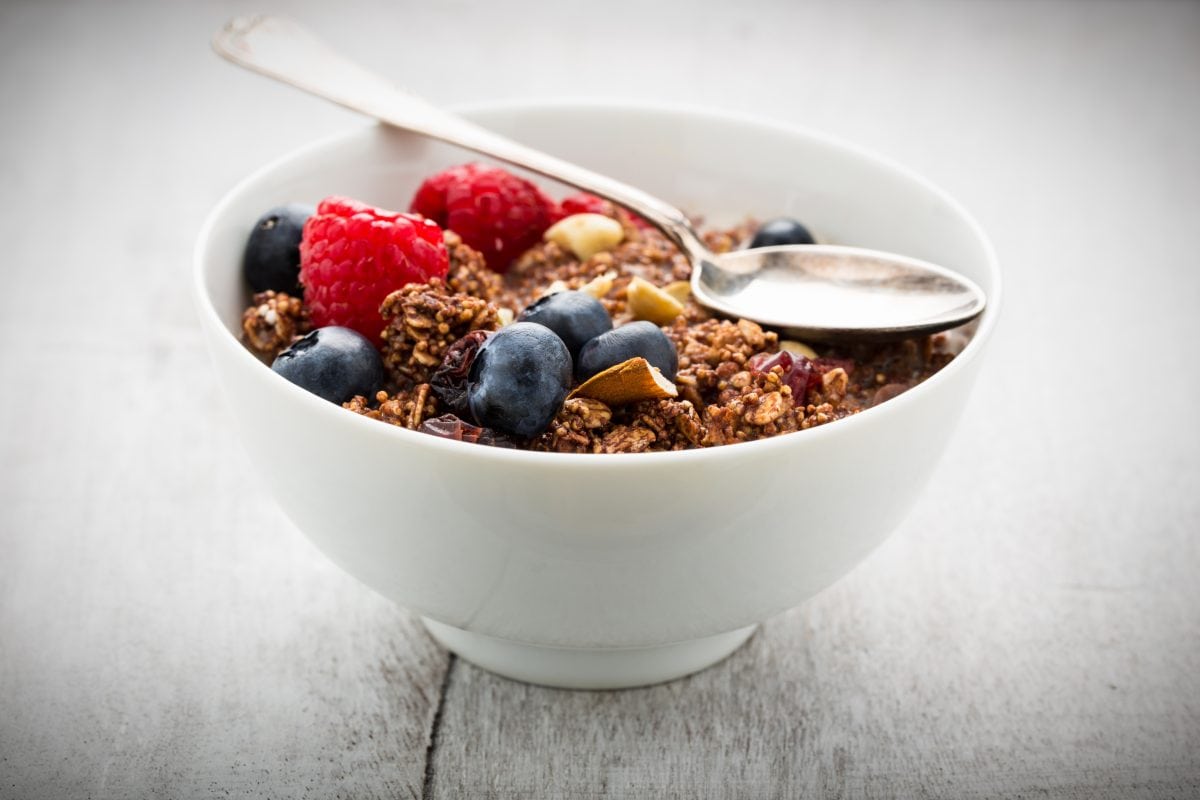(For my easy to make veggie and eggs breakfast, see the video link here)
If I gave you this advice, how would you react? Would you think I was trying to harm you?
Or would you realize this is sound advice as part of a healthy nutritional strategy?
While the latter is true, most people likely fall into the first category. We can thank governmental and professional societal recommendations for that. For years eggs have been lumped into the “fat is bad” trend that ruled American nutritional standards.
Here is the truth. Eggs, including the yolks, can be an important component of a nutrient dense, vegetable based, real-foods style of eating that is beneficial to our overall health.
Mis-Guided Guidelines
As recently as 2000, the American Heart Association and American College of Cardiology guidelines recommended limiting dietary cholesterol intake to less than 300mg per day. Interestingly they followed that recommendation with the following quote: “There is no precise basis for selecting a target for dietary cholesterol intake.” Essentially they admit that they just made up the 300mg limit. That doesn’t appear to be the strongest of guidelines.
To be fair, they felt there was a legitimate concern. Eating cholesterol could increase blood cholesterol levels, or so they thought. In addition, they pointed out that foods high in cholesterol are also high in saturated fat, and therefore should be avoided. In a way, dietary cholesterol was vilified because of the company it keeps. Of course, now we know the restrictions on saturated fat were also misguided (see the specific post here).
Fortunately, the ACC/AHA has come around and their most recent guidelines state “There is insufficient evidence to determine whether lowering dietary cholesterol reduces LDL-C.”
That has not kept cereal makers, bread and bagel companies, and others from continuing to promote eggs as dangerous to our health and something we need to avoid.
The interesting and often misleading intersection of health, food, and marketing rises again.
Setting the Record Straight
It turns out, there are numerous studies that all draw the same conclusion: For the general population, egg consumption is NOT associated with an increased risk of cardiovascular disease, and does not adversely affect our cholesterol levels. In fact, there is some evidence to suggest it is beneficial to our overall health.
A look back at the Physician’s Health Study of over 21,000 people found that eating up to 6 eggs per week had no association with an increased risk of heart attack or death. Eating more than 7 eggs per week in diabetics may have had an association, but beyond that, there appeared to be no harmful link.
Analysis of both the Health Professionals study and the Nurses’ Health Study concluded that eating one egg per day had no significant impact of risk of heart disease or death.
A large meta-analysis of 17 trials and over 4 million person-years showed higher consumption of eggs was not associated with an increased risk of heart disease or stroke.
In aggregate, there is no evidence in the general population that egg consumption increases the risk of heart disease or death. While those with diabetes may be an exception, that requires further investigation.
Is There a Benefit?
Just because something isn’t bad for us doesn’t mean we should flock to it and make it part of our regular eating habits. But is there evidence that eggs may be good for us?
It turns out there is.
For starters, eggs are packed with vitamins and minerals that our bodies need. One large egg has
- 78kcal
- 6gm protein
- 5gm fat (1.6 gm saturated fat, 2 gm monounsaturated fat)
- Fat soluble vitamins: Vit A, D, E, and K2 (K2 is very difficult to get from other common nutritional sources)
- Vitamins B-6 and B12
- Calcium
- Amino acid leucine
- Choline
- Selenium
- Omega 3 fatty acids
- And more…
If you just eat the whites, remember that the yolk has all the fat-soluble vitamins and 90% of the B vitamins, calcium, fatty acids and other nutrients (aside from the protein).
Packed with that many vitamins and minerals, it makes sense that eggs would be good for us.
One additional benefit is that they help fill us up. Compared to a bagel breakfast with the same total calories, an egg breakfast increased the feeling of being full and reduced how many calories subjects ate the rest of the day.
And remember the concern that eggs worsen our blood cholesterol levels? It turns out that couldn’t be further from the truth.
Eggs may minimally increase total cholesterol, but more importantly, they increase HDL and thus maintain the total cholesterol to HDL ratio, a more powerful predictor of heart disease risk than total cholesterol alone.
Whole egg consumption, compared to an egg white substitute, improves the atherogenic lipid profile (that means it makes the cholesterol less dangerous).
Eggs increase HDL, and can change the LDL from dense, more dangerous particles to large, less dense less dangerous particles.
None of this means that eggs have been proven to lower our risk of cardiovascular disease, but absence of proof does not equal proof of absence. In other words, since eggs haven’t been proven to be harmful, and there are plausible reasons why they could be beneficial, we should welcome them as part of a vegetable-based, nutrient dense eating pattern.
Eggs Got a Bad Rap
So, in the end, it turns out that eggs got a bad rap.
They were innocent bystanders caught up in the marketing storm that followed poorly understood guidelines regarding dietary cholesterol intake.
Eggs can be an integral component of a nutrient dense, real-food way of eating.
They provide essential vitamins and minerals, they are filling and enjoyable, and they can improve our overall blood lipid profiles. While there is still some hesitation about individuals with diabetes consuming more than one egg per day, the rest of us can freely “Take two eggs and call me in the morning.”
Remember, however, the company they keep is still important. Instead of having two eggs with hash browns, pancakes and low-quality processed sausage at your local dirty spoon, try preparations like my simple eggs and veggie dish. It takes less than 5-minutes to make start to finish, it is delicious, and it is the perfect way to start your day. Here is the video link.
Interested in Cholesterol?
If so, you’ll love my new program, The Truth About Lipids. In this video course, I walk you through the evidence for and against lipids being a health concern, and I show how we can all better assess our cardiovascular risk. Learn more or sign up here.
Thanks for reading.
Bret Scher, MD FACC
Cardiologist, author, founder of Boundless Health
www.DrBretScher.com
Action item:
Make it! You only need, eggs, avocado oil, a box of spinach, a sprig of kale, left-over veggies, celtic sea salt, and grass-fed cheese. It takes less than 5-minutes to make. And if you don’t have time to eat it, take it with you in a glass container. It even tastes great cold!




